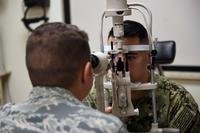As reported here numerous times over the last year, the bulk of the changes to the Post-9/11 GI Bill (GI Bill 2.0) went into effect on August 1. Here is a summary of all the changes that have gone into effect so far.
- Eligibility Expanded for National Guard. The Post-9/11 GI Bill now includes active service performed by National Guard members under title 32 U.S.C. for the purpose of organizing, administering, recruiting, instructing, or training the National Guard; or under section 502(f) for the purpose of responding to a national emergency. However, this will not be payable until October 1, 2011.
- Active duty Tuition Coverage Changed. Members now have the same tuition and fees prorating as other GI Bill users based on the eligibility tiers (40%-100%). These new limitations also apply to spouses of active duty servicemembers. (Went into effectg on March 1, 2001). In addition, they will have their tuition and fee benefits limited to the “in-state resident limits” for public schools and the $17,500 annual limit for private schools. (August 1, 2011)
- Tuition and fee rates: Pays all public school in-state tuition and fees, regardless of degree level (AA, BA, MA, PHD). Private and foreign school costs are now capped at $17,500 annually.
NOTE: The Yellow Ribbon Program still exists for out-of-state fees and costs that exceed the cap. - GI Bill ‘kickers’, or college fund payments, paid on a monthly basis instead of a lump sum at the beginning of the term.
- Housing allowance prorating by the student’s rate of pursuit (rounded to the nearest tenth). This means students going less than full-time will see a reduced stipend.
- Break or interval pay ended for all VA education benefit program unless under an Executive Order of the President or due to an emergency, such as a natural disaster or strike.
- Multiple “license or certification” test reimbursement (previously only one test was allowed).
- National Exam reimbursement paid to take national exams used for admission to an institution of higher learning (e.g., SAT, ACT, GMAT, LSAT)
- Vocational Rehabilitation and Employment (chapter 31) benefits and Post-9/11 GI Bill (chapter 33) benefits option.
- Transferability for NOAA and PHS personnel eligible to transfer their entitlement to eligible dependents
So, there you have it, a quick list of the changes that are now in effect. The remaining changes will go into effect on October 1, 2001. These changes include:
- Expanded education and training coverage. All eligible students will be able to use their Post-9/11 GI Bill for -
- Non-college degree (NCD) programs: Non-college degree (NCD) programs offered at non-degree granting schools: Pays the actual net costs for in-state tuition and fees or $17,500, whichever is less. Also pays up to $83 per month for books and supplies.
- On-the-job and apprenticeship training: Pays a monthly benefit amount prorated based on time in program and up to $83 per month for books and supplies.
- Flight programs: the Post-9/11 GI Bill will cover the actual net costs for in-state tuition and fees assessed by the school or $10,000 (per academic year), whichever is less.
- Correspondence training: the Post-9/11 GI Bill will cover the actual net costs for in-state tuition and fees assessed by the school or $8,500 (per academic year), whichever is less.
- Housing allowance will be payable to students (other than those on active duty) enrolled 100% online or in distance learning courses. The housing allowance payable is equal to ½ the national average BAH for an E-5 with dependents. The full-time rate for an individual eligible at the 100% eligibility tier would be $673.50 for 2011.
- New Book Stipend Rules. Active duty (and their eligible dependents) will be able to receive the books and supplies stipend.



